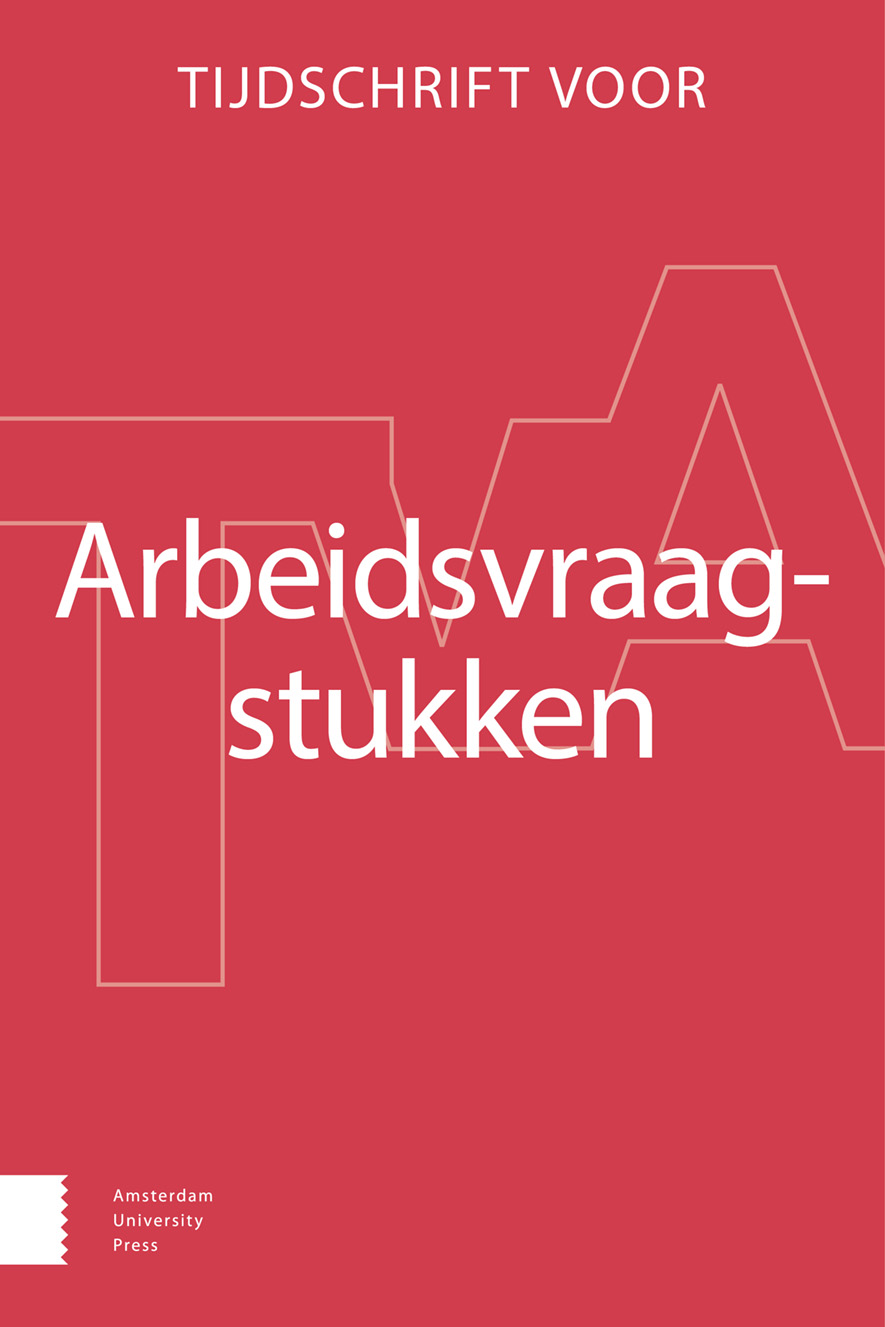-
oa Flexibel werken tijdens laagconjunctuur
De arbeidsmarktpositie van flexwerkers
- Amsterdam University Press
- Source: Tijdschrift voor Arbeidsvraagstukken, Volume 24, Issue 2, Jun 2008,
Abstract
Working flexible during unfavorable economic conditions
In the Netherlands, working in a flexible job implies higher risks of job loss and insecurity at work. As most flexible workers eventually switch to a permanent job, labour market flexibility does not really function as an individual 'trap'. However, most studies on the consequences of flexible labour were carried out during more favorable economic conditions. In this article we study flexible workers' labour market position in a period of declining economic growth and rising unemployment. Data from the Dutch Institute for Labour Studies (OSA), ranging from 1998 to 2004, are analyzed with respect to 'unemployment', 'job insecurity' and the 'transition rates' from flexible contracts. Our main finding is that flexible employees cannot be regarded as a segmented workforce.


